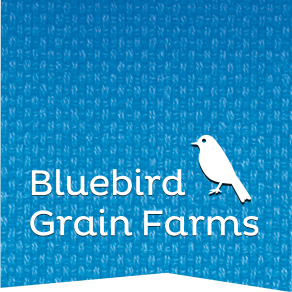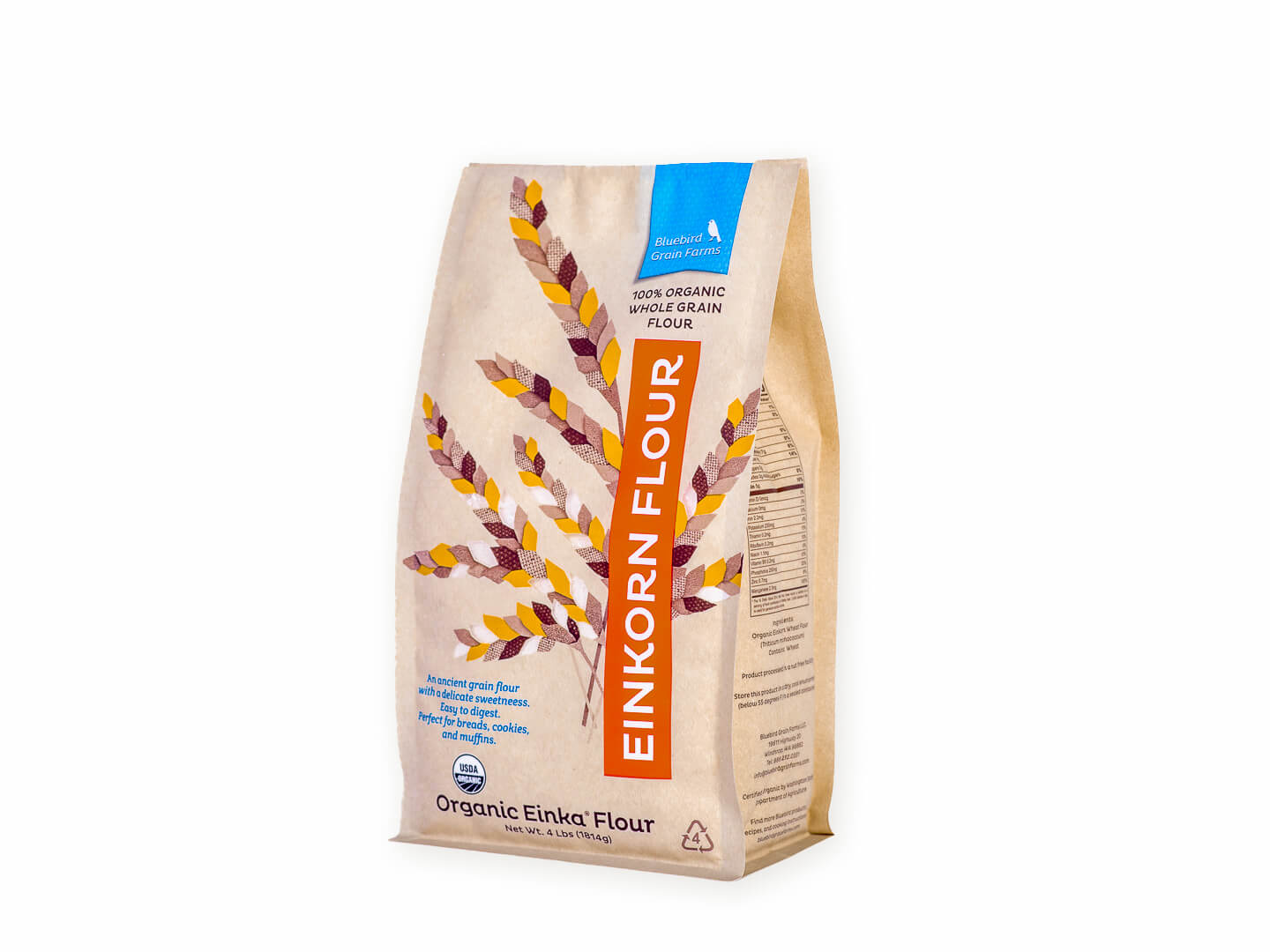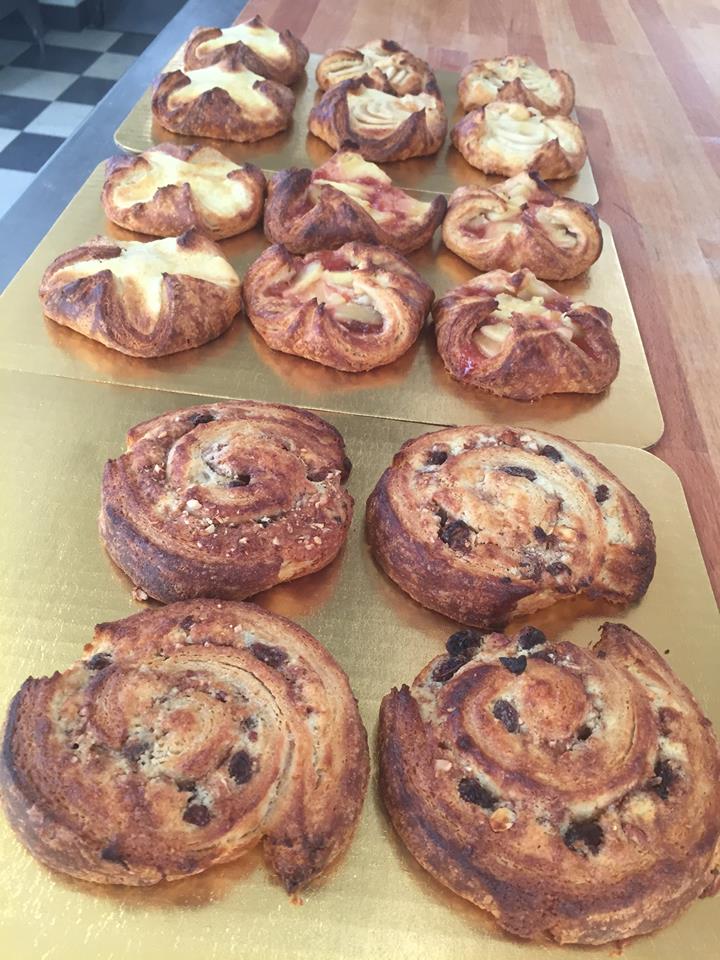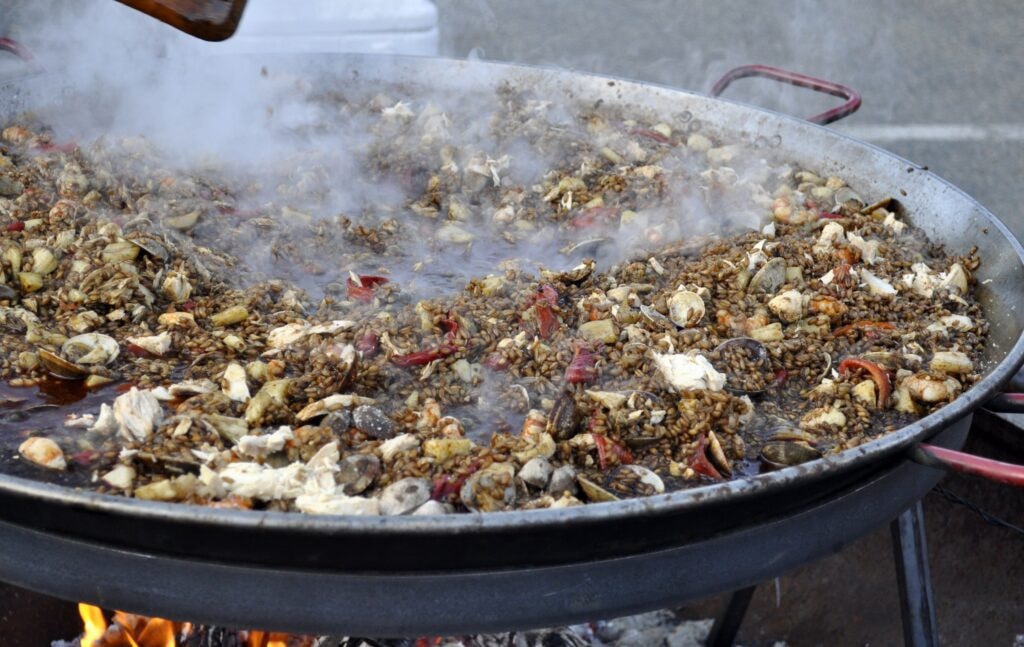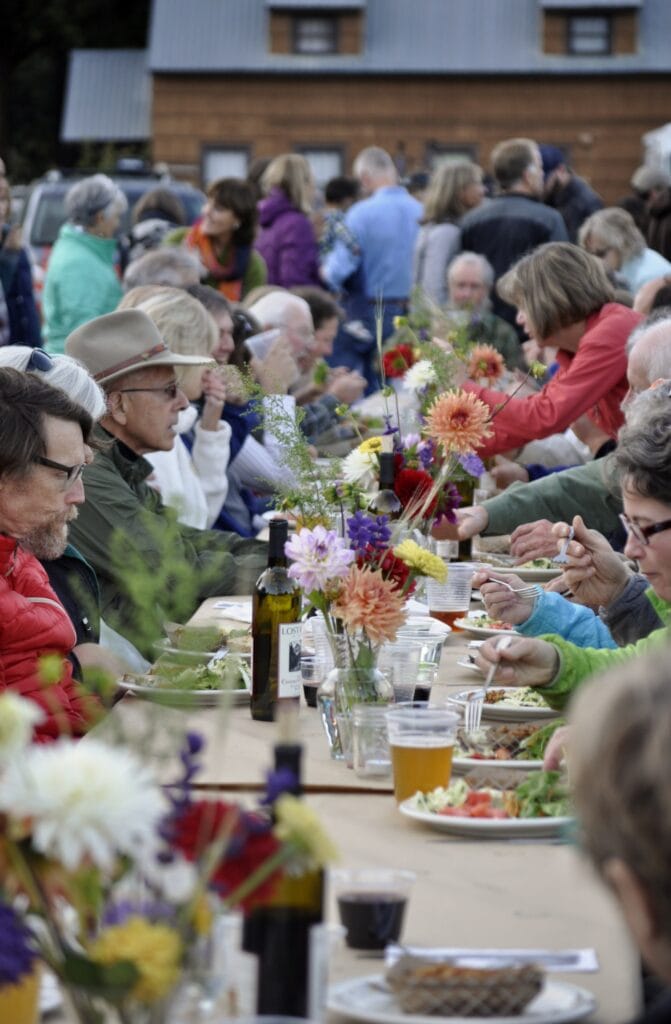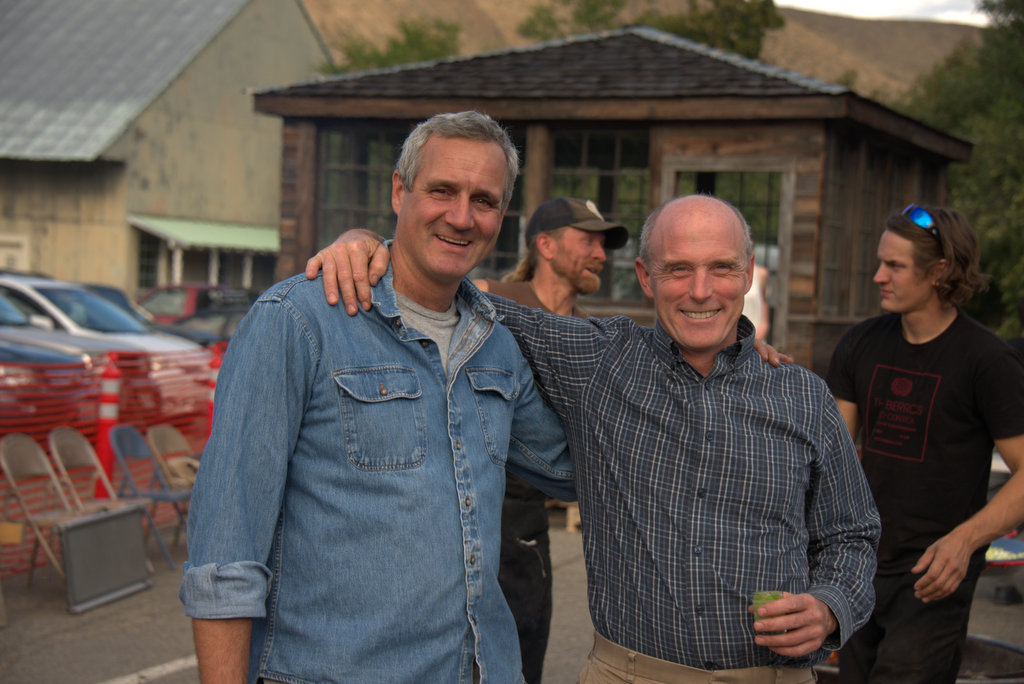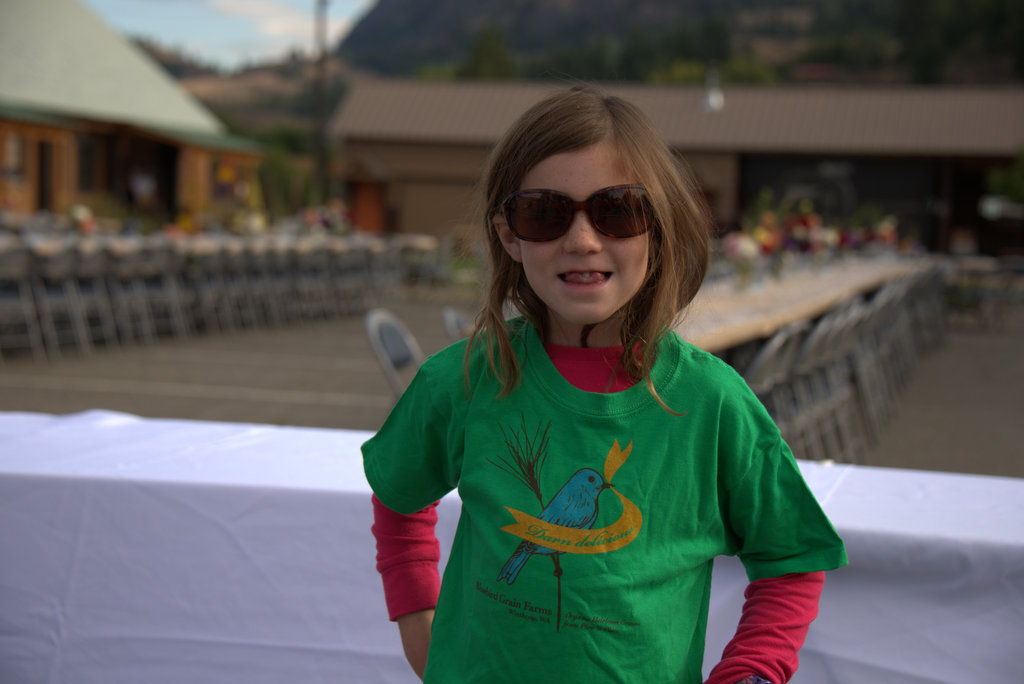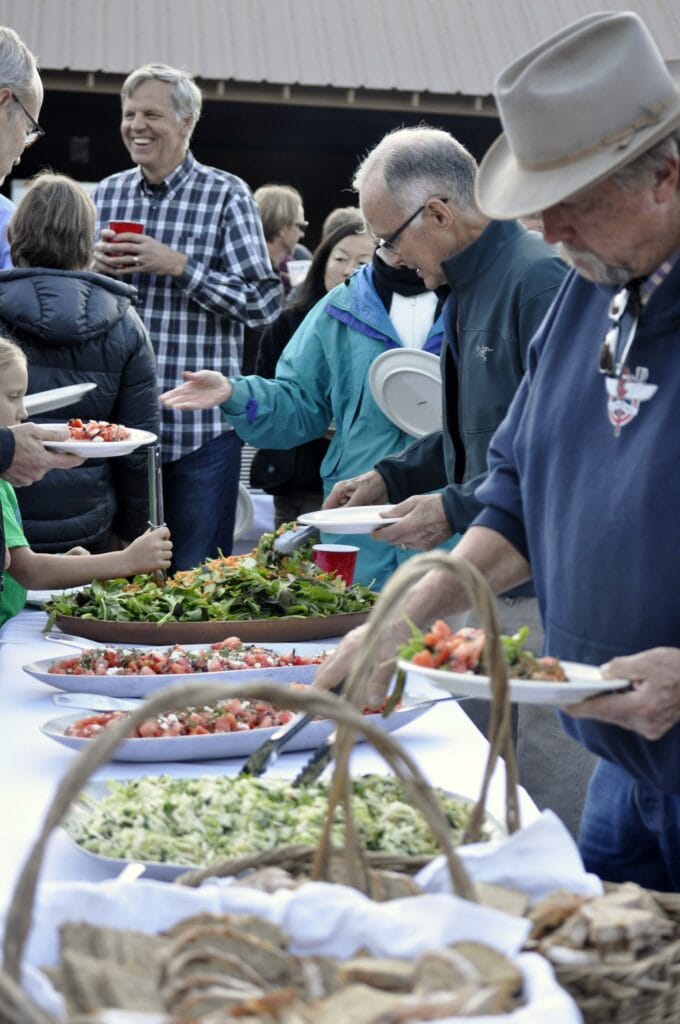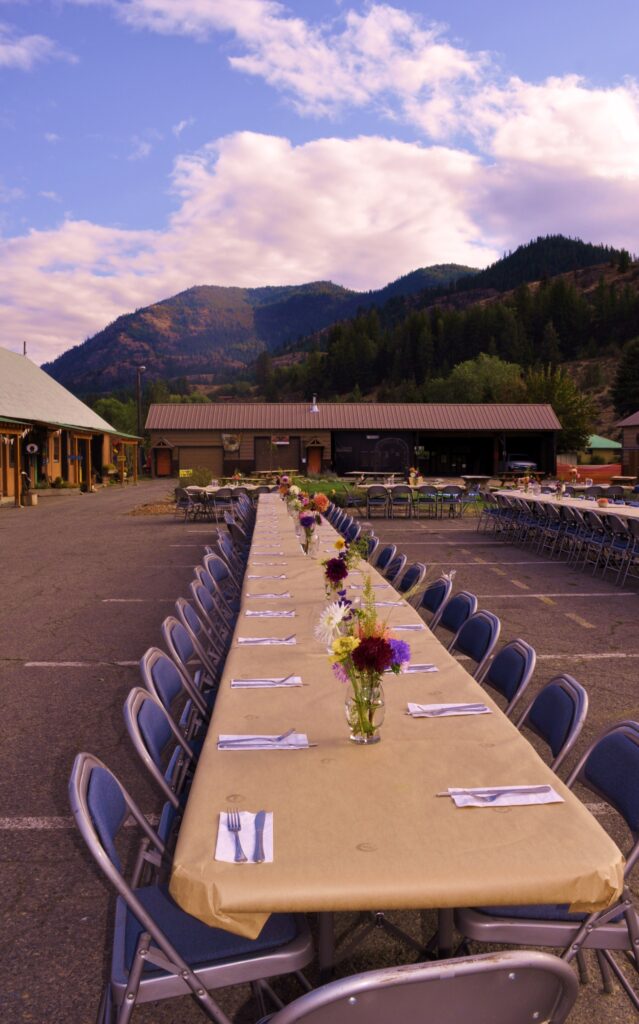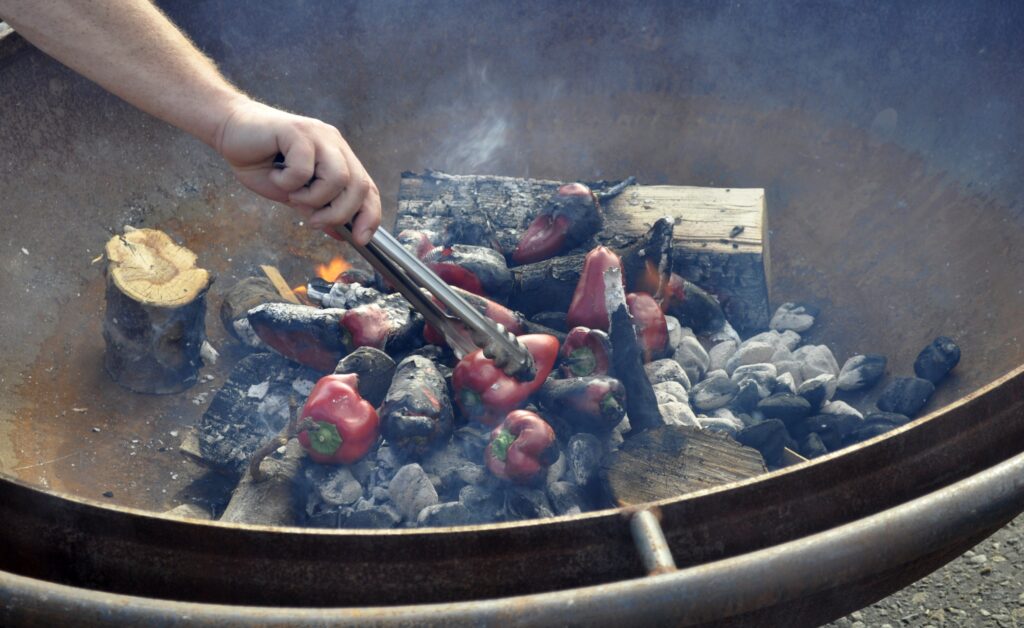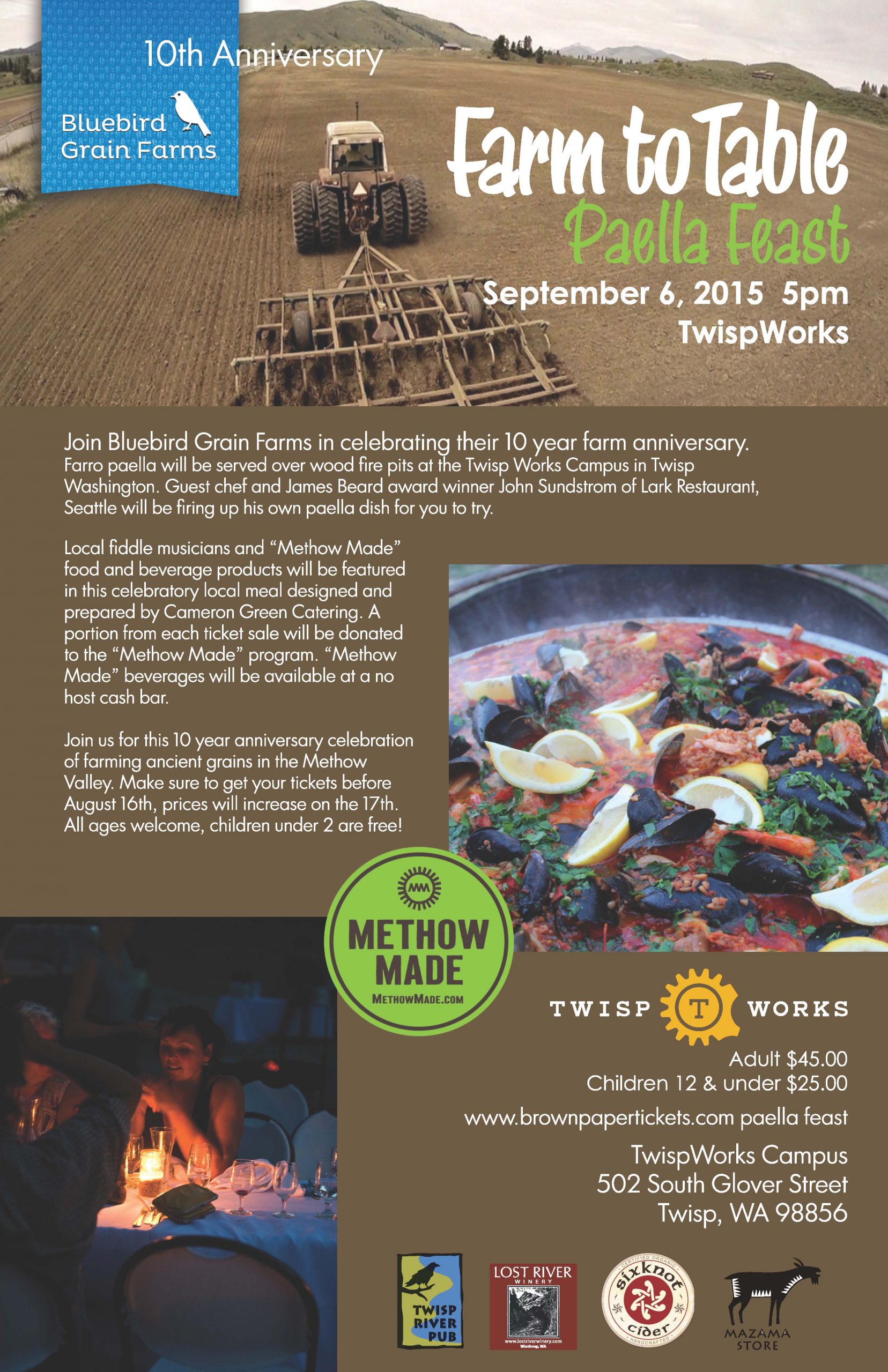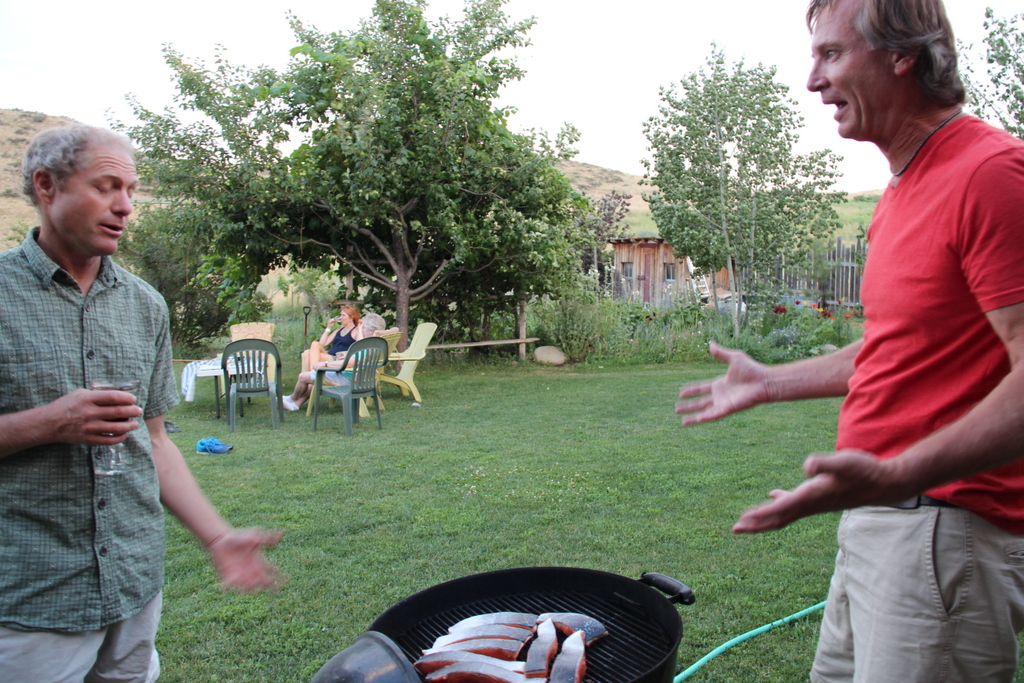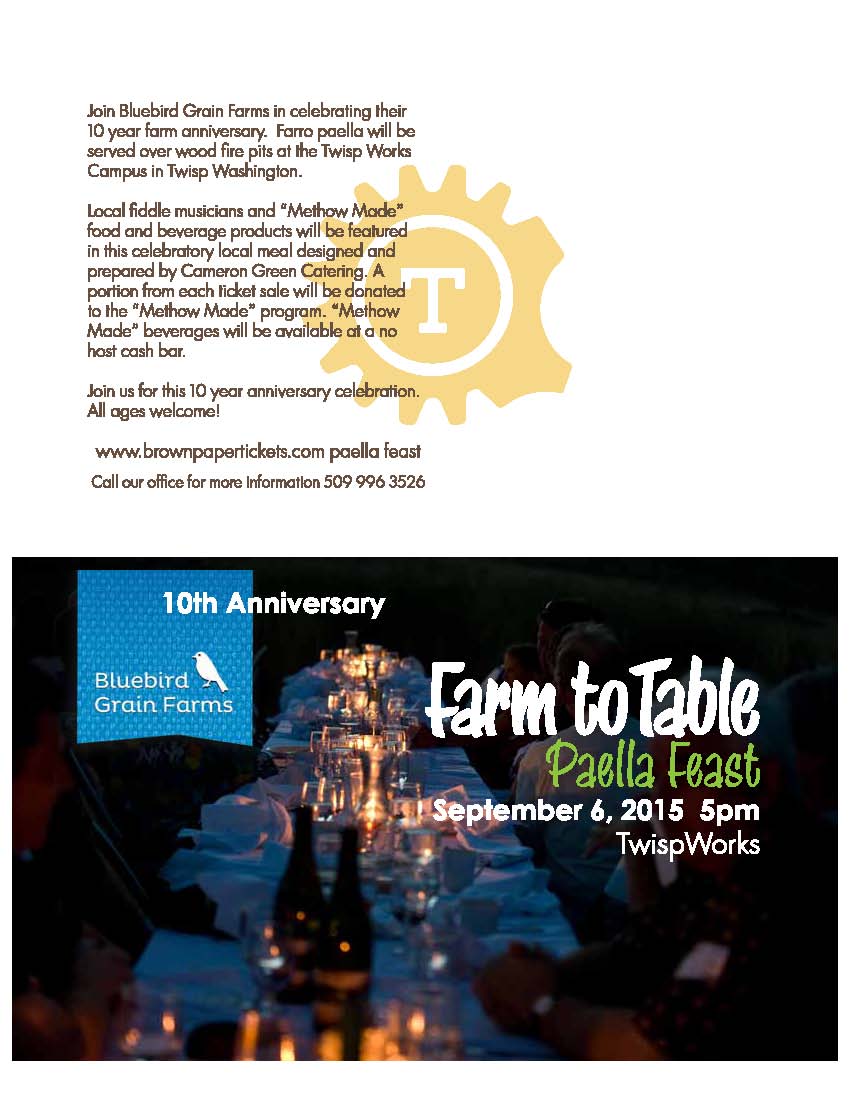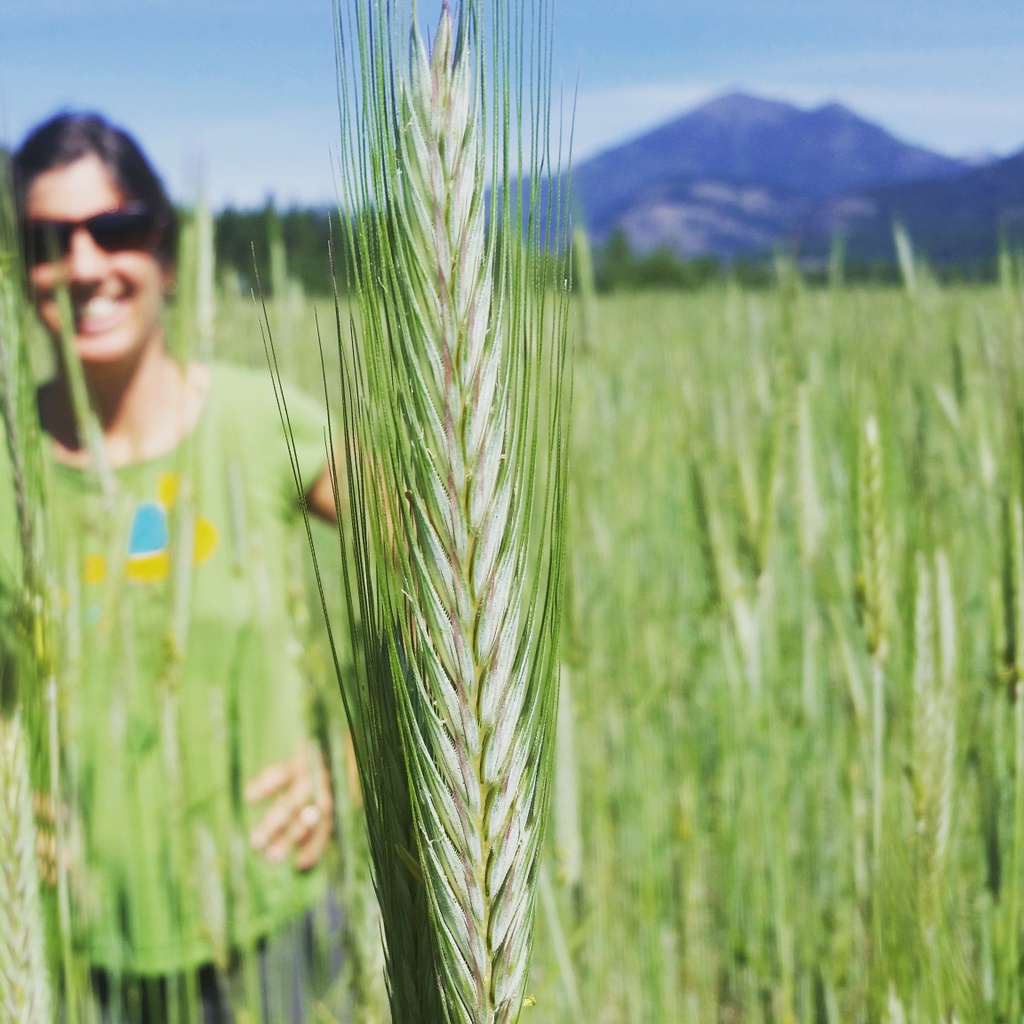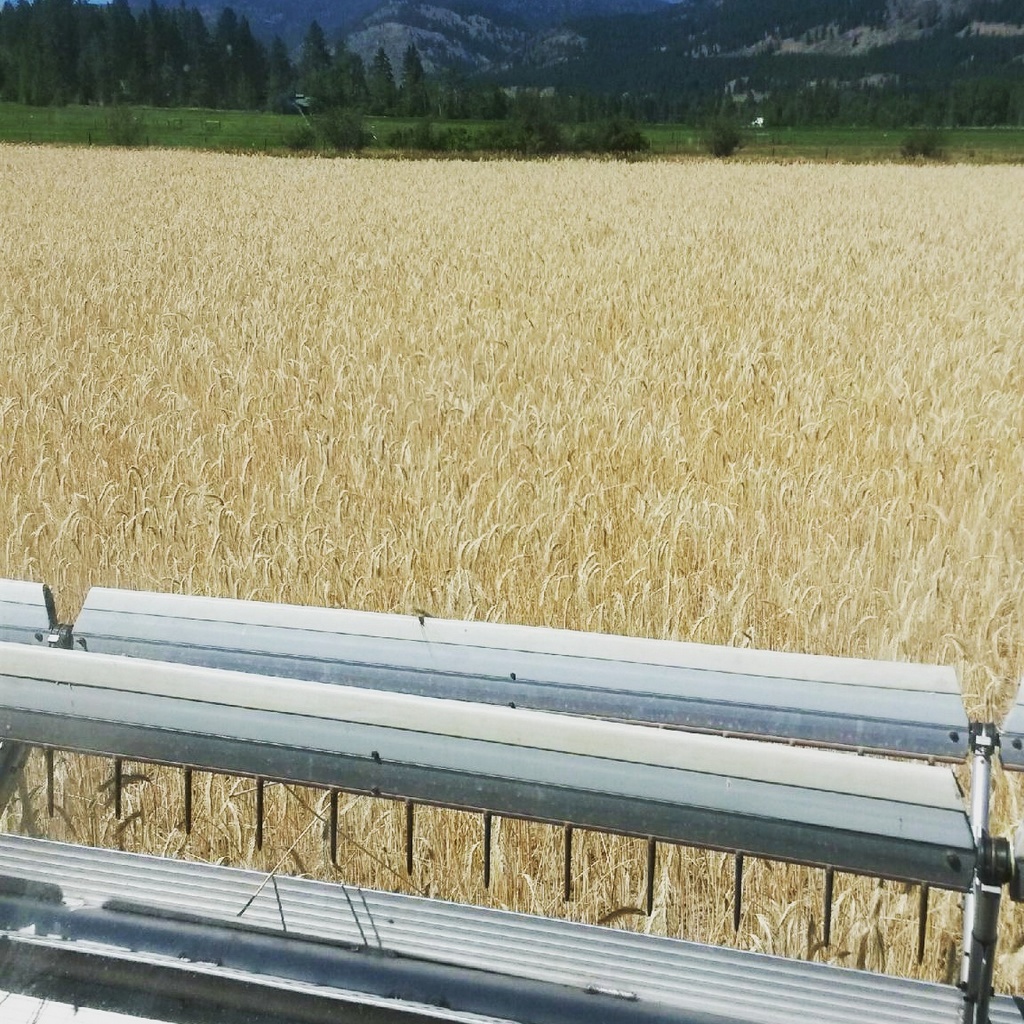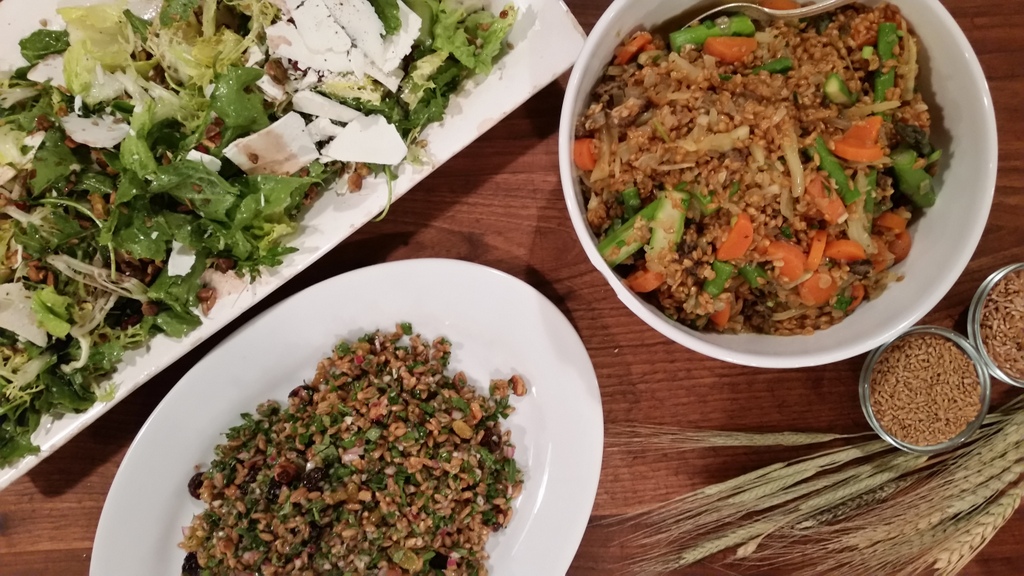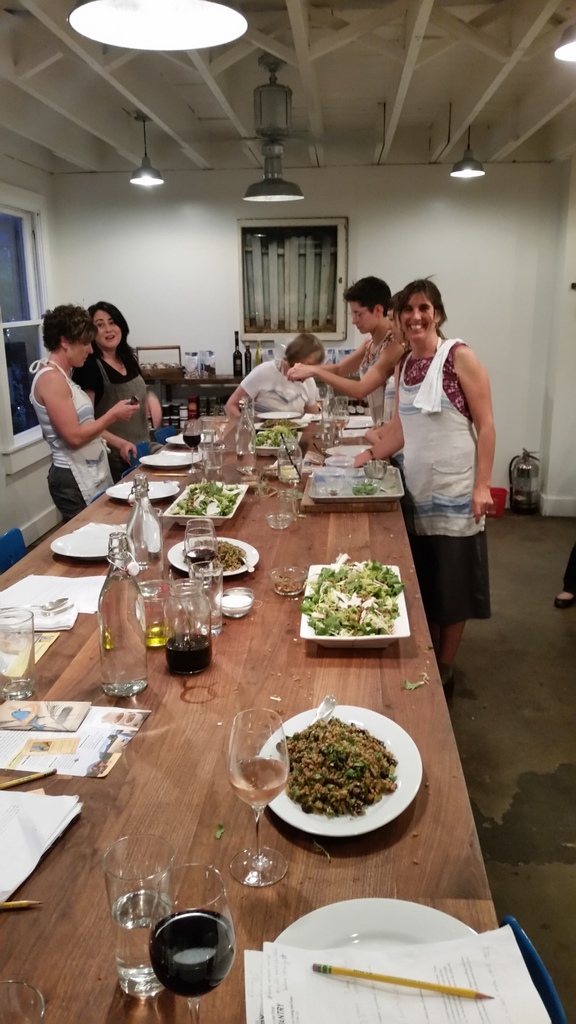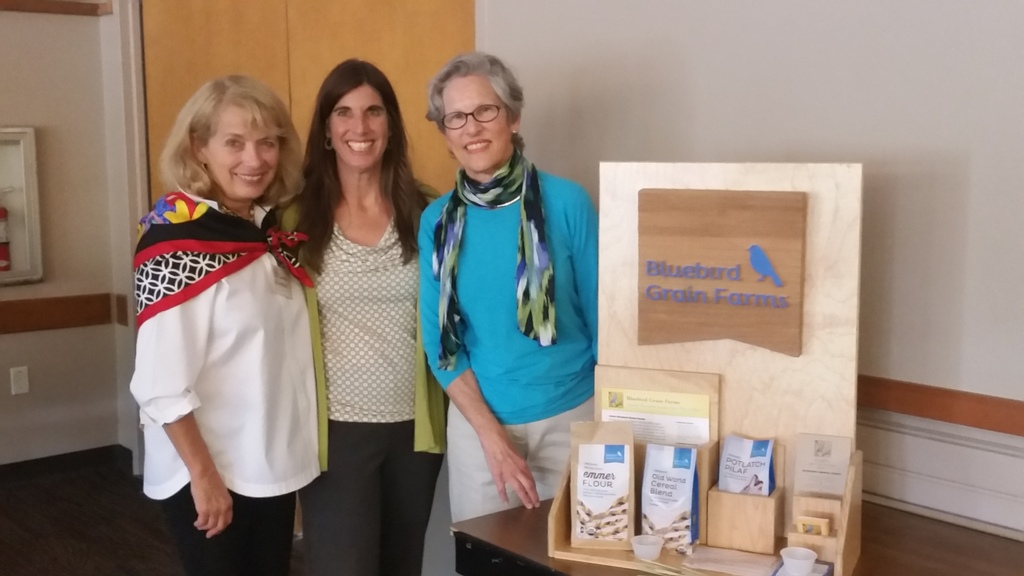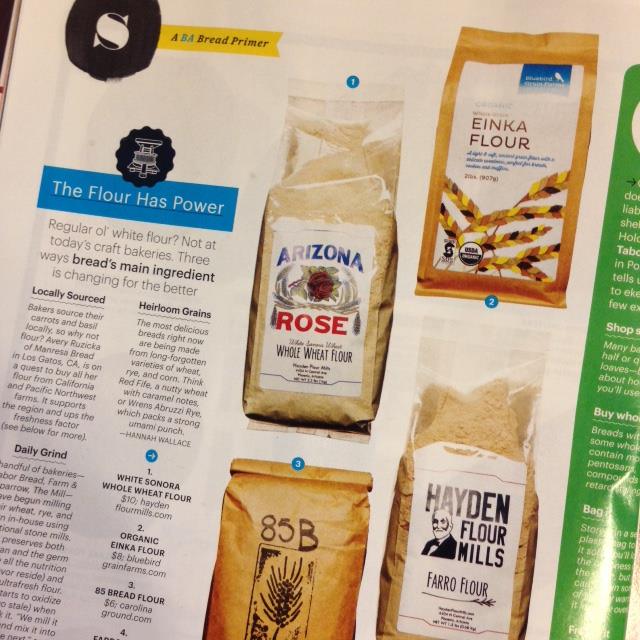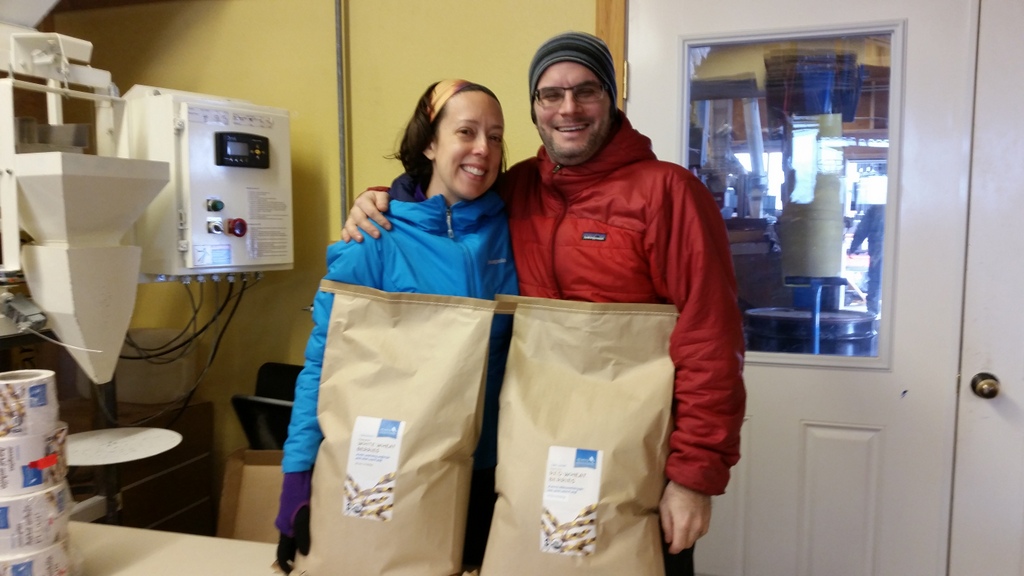by Ashley Lodato
When Heather Ostenson won the Douglas County Wheat Wives’ Junior Baking Queen award at the county fair as a 10-year-old, little did she suspect that one day she would be the owner and chief baker at her own bakery.
It’s not surprising, however, that despite a first career in industrial design and civil engineering, Heather eventually ended up pursuing baking as a livelihood. An early childhood spent on a farm in Arroyo Grande, CA, gave Heather daily lessons in food sources. The family raised poultry, pigs, and sheep for their own consumption, and grew a garden. Heather watched her mother (“and probably wasn’t much help,” she says) growing sprouts on the counter, preserving home-grown food, and grinding wheat for bread. “These are my first memories of knowing where our food comes from,” she says.
Heather’s family moved to the Wenatchee area when she was six, and this is about when Heather finally found her stride in the kitchen and joined the local 4-H, which was led by her mother. Although she had long helped bake Christmas cookies, through 4-H Heather learned to prepare meals, put up food, sew, and bake; her baking skills led to her eventual coronation as Junior Baking Queen in 1984.
Fast forward to Wenatchee, WA, 1997. Heather and her husband Jeff had recently moved back to Wenatchee, and craved some of the ethnic foods they had developed a taste for during college and living in bigger urban centers. They began “taking turns hosting ethnic dinners” with friends–many of whom were high school friends who had also recently moved back to the Wenatchee area–preparing “things we couldn’t get in Wenatchee at the time,” says Heather. During that period Heather, who was working as a civil engineering technician, began to rekindle her interest in cooking. “I would spend weekend mornings watching Great Chefs on PBS, and I had a subscription to Martha Stewart!” she says.
As Jeff was managing his family’s organic tree-fruit packing shed out in the Basin, the Ostensons were closely tied to what was happening in the organic fruit markets and programs. “We were also being exposed to food and wine culture,” says Heather. “I guess you could say we became foodies.” Heather began cooking in earnest on the weekends, “partly out of the joy I derived from [the process of cooking] as well as from sharing good food with others.”
Although she didn’t bake consistently during those years, Heather did pick up a copy of Jim Lahey’s book My Bread: The Revolutionary No-Work, No-Knead Method, and that re-ignited her passion for baking, both traditionally as well as with gluten-free flours. Two years ago she started baking cakes for friends and family birthdays, and she hasn’t stopped since.
In the fall of 2014 Heather attended the San Francisco Baking Institute. In December of that year she using borrowed space in Lulu’s commercial kitchen in East Wenatchee to bake cakes and breads. Demand, however, quickly outpaced Heather’s borrowed space and she began searching for a place of her own, which she found in unlikely locale–at the LINK Transit‘s Columbia Station. And thus Balsamroot Baking expanded into Balsamroot Bakery & Cafe.
Columbia Station is not your average bus station. Bright and modern, the station is the hub for dozens of routes that connect the Wenatchee area with 17 communities in Chelan and Douglas counties. And Balsamroot Bakery & Cafe is not your average bus station coffee house. Situated on a corner, the cafe has windows on three sides of the building, with eastern exposure frontage on Columbia Street that allows for outdoor seating. Serving breakfast, lunch, and Saturday brunch, the cafe links the menu to the seasons, with pastries, desserts, and Blue Star Coffee available all day long. For Heather, the underserved neighborhood of Columbia Station also appealed; she likes bringing business into that area of Wenatchee.
Balsamroot’s menu speaks to a wide audience. For some customers, gluten-free is essential, and even some of the most decadent baked goods are available as gluten-free. For others, organic and locally-sourced ingredients are important, which is just one of many reasons why Heather uses Bluebird Grain Farms exclusively for her flours (except for gluten-free).
What Heather is doing at Balsamroot Bakery is pretty unique. Although there are other commercial bakers using whole grain flours exclusively for their breads, Heather hasn’t run across anyone else making only whole grain pastries. Gluten-free and whole-grain products at Balsamroot provide more than just sustenance for customers, says Heather, they serve as “a platform for conversations about food integrity and nutrition. People might come in thinking they need or want gluten-free. While we don’t try to talk them out of that, for people who don’t have a medically-necessary reason for eating that way, they often ultimately choose the whole grain items we have.” Ultimately, Heather is interested in cultivating greater awareness about food integrity through the food the cafe and bakery offers.
For many customers, Balsamroot is their first experience with whole grain baked goods, especially whole grain pastry and desserts, and their enlightenment begins the moment they taste their first scone or piece of toast. Since Balsamroot does only whole grain baking, “we don’t really have any ‘transitional’ or ‘gateway’ products,” says Heather. “While we love the flavor, texture, and nutrition of whole grain baked goods, for someone whose exposure is predominantly highly processed white breads – what we do is going to be very different from their past experience. We try to let every customer know that they’re eating whole grains.”
Heather’s commitment offering local, organic, and nutritious foods has led her to source ingredients from a variety of small Central Washington producers in addition to Bluebird Grain Farms: goat cheese from Sunny Pine Farm in Twisp, meats from Crown S Ranch in Winthrop, meats and cheeses from local businesses in Pybus Market, coffee from Blue Star Coffee Roasters in Twisp, tea is from Cha Fine Teas in Pybus Market, produce from Rhubarb Market in Wenatchee, as well as chocolate from Theo Chocolate in Seattle. “We work hard to provide delicious, healthful whole foods that showcase what our region has to offer,” she says. She continues, “What we’re doing with the bakery cafe is a little ‘fringe’ or risky. It’s sad, frustrating, and surprising that in such an agriculturally rich region, eating locally and caring about how your food is grown and raised would be something of a ‘fringe’ idea. We take risks everyday in what we put on the menus and in the case.”
These risks include constant experimentation with new offerings. “Because we are baking exclusively with whole grain flours, we have to adjust nearly every formula we use,” says Heather. “Sometimes it takes a few test batches to get it right–and this takes time, so squeezing everything in to a day can be a challenge, or makes for long days. Consistency is a challenge for certain items; for example, how do we achieve a consistent form in our scones when we are changing the add-ins daily or weekly?”
With other items, Heather says, “we are constantly trying to evolve–like our pain a l’ancienne baguettes,” in which she uses Bluebird’s Pasayten Hard White Flour. Much of baking is chemistry, Heather reminds us, and she loves “the dichotomy of baking: intuition and science.” When she ferments bread overnight, for example, she is “shepherding” the product for a day or more. If something doesn’t turn out as she anticipated, Heather says, “I’ll retrace my steps and give it another go (or two or four) until I get it figured out. I tinker constantly with formulas and procedures, after the best product I can produce with the tools I’ve got.” The end products are a result of numerous trials, copious notes, and serendipitous hunches.
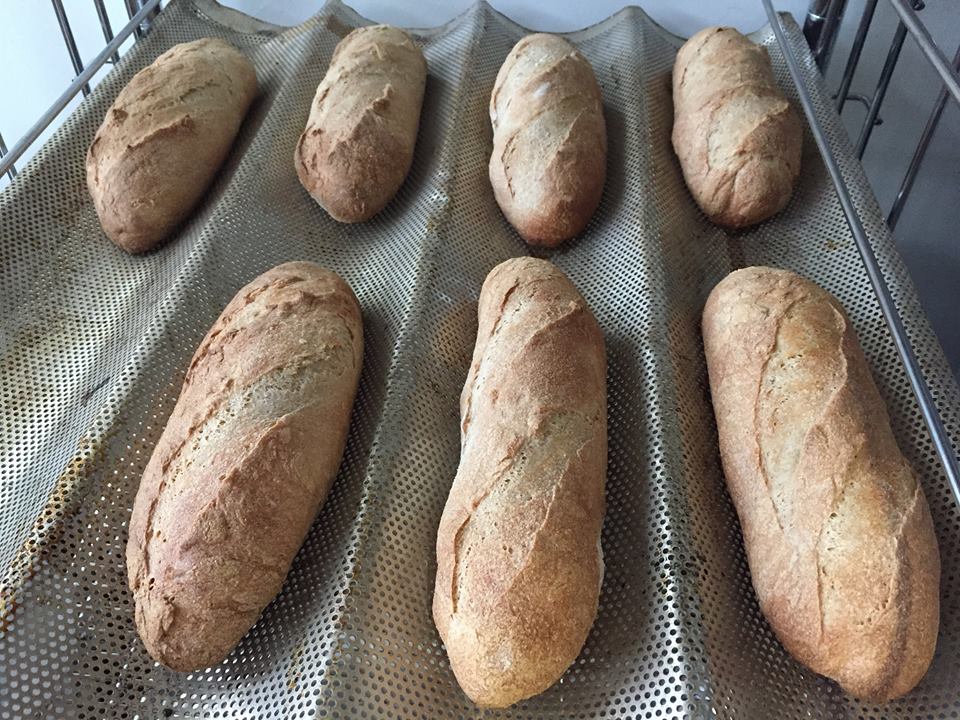
Balsamroot’s baguettes are made with Pasayten Hard White , cold fermented overnight, and formed wet.
While all this experimentation doesn’t lead to efficient mass production, it does lead to products that Heather can stand behind, both nutritionally and philosophically. “We have become a society that expects instant gratification,” she says, “but we don’t think about the full magnitude of satisfying our appetites for goods.” Heather hopes that Balsamroot will aid people’s understanding of the food economy, our environment, and our health.
With winter right around the corner and Heather’s interest in seasonal cooking, German and Scandinavian breads are next up in the mixing bowl. And while the recipe will differ from those breads she has been baking all summer and fall, the message that these breads, like everything that comes out of the Balsamroot kitchen, communicate will be the same: ingredients matter.
